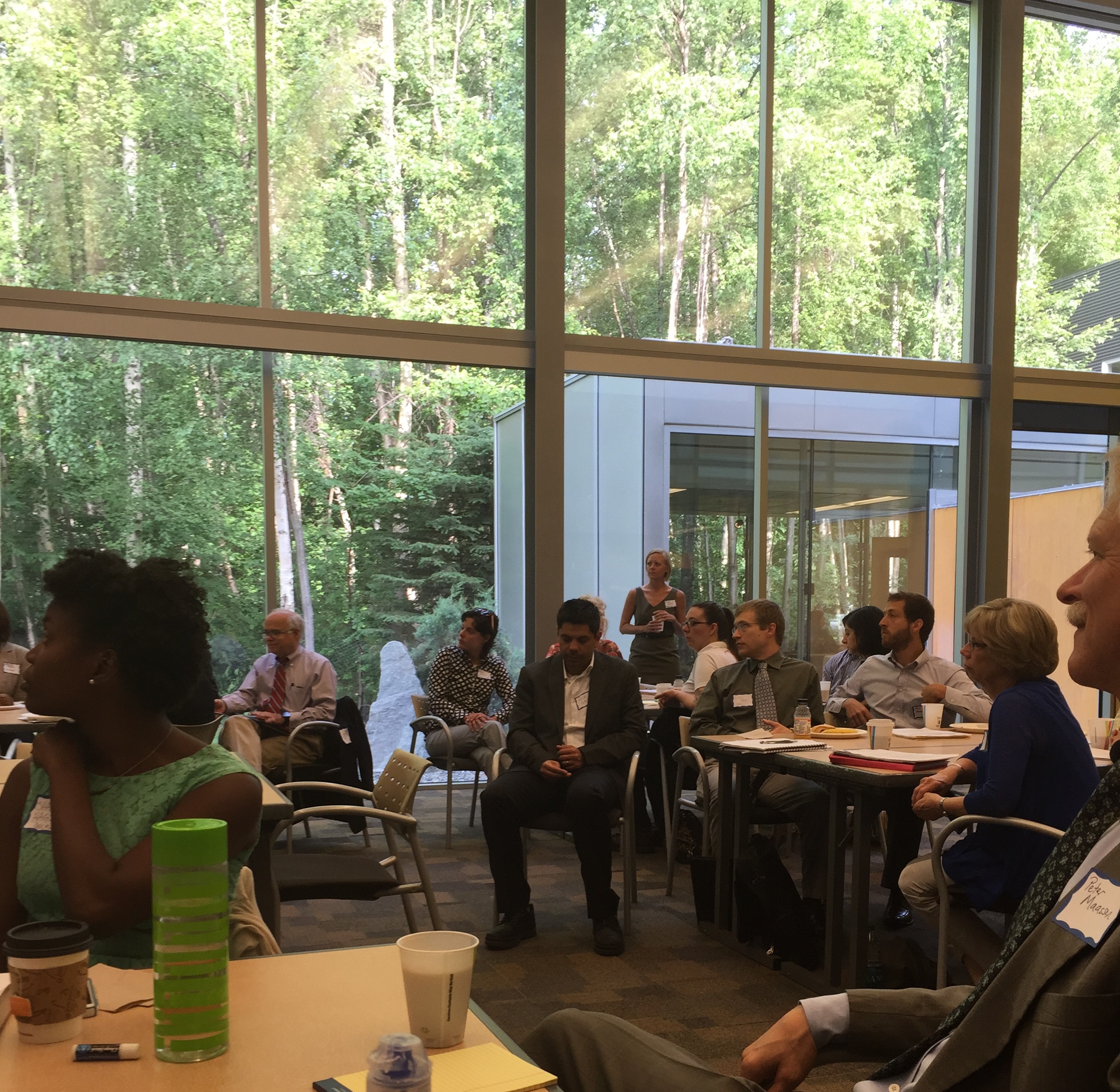In Alaska, housing instability is among the highest risk factors for poor health, and one of the most frequently reported needs among people with low-incomes. Indeed social conditions are at the root of many health problems in the state.
In late June, leaders from over a dozen legal, health and public health organizations across the state met in Anchorage to strategize about how they can link their services and leverage existing resources to better address social conditions affecting the health of Alaskans, and in particular Alaskan Natives. The meeting was convened by the Alaska Legal Services Corporation (ALSC) and the Alaska Primary Care Association.
Over the last year, a medical-legal partnership (MLP) pilot launched in Juneau, and several Alaskan Native Tribes passed resolutions in support of MLP. The meeting in Anchorage, which was spearheaded by Nikole Nelson, head of ALSC and a 2014 Where Health Meets Justice Fellow, built on this momentum with the hope of adopting a statewide approach to the coordination of these services, and to be strategic about how to most effectively allocate the scarce legal aid resource.
The meeting focused on peer-to-peer learning from MLP experts. Participants heard from Maha Jweied of the U.S. Department of Justice’s Office for Access to Justice and Matt Van Wormer of Four Corners Legal Care on Navajo Nation about the benefits of medical-legal partnership (MLP) in Indian Country. The Navajo MLP has been in operation for six years, and with support from the Kresge Foundation, provides technical assistance to help develop partnerships in other tribal communities. Brian Johnston, who is Chief of Pediatrics at Harborview Medical Center and works with the Washington Medical-Legal Partnership, teamed with leaders from the Rasmuson Foundation, Southcentral Foundation, Kenaitize Tribe’s Dena’ina Wellness Center, and the Juneau Alliance for Mental Health, Inc. to help participants conceptualize a sustainable strategy that links legal and health care services.

